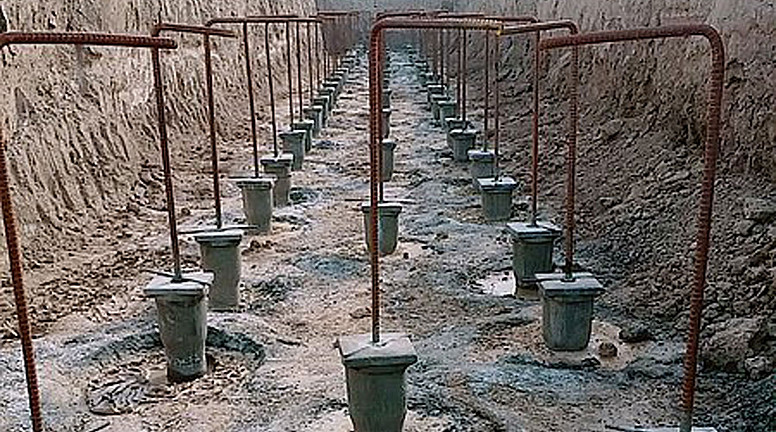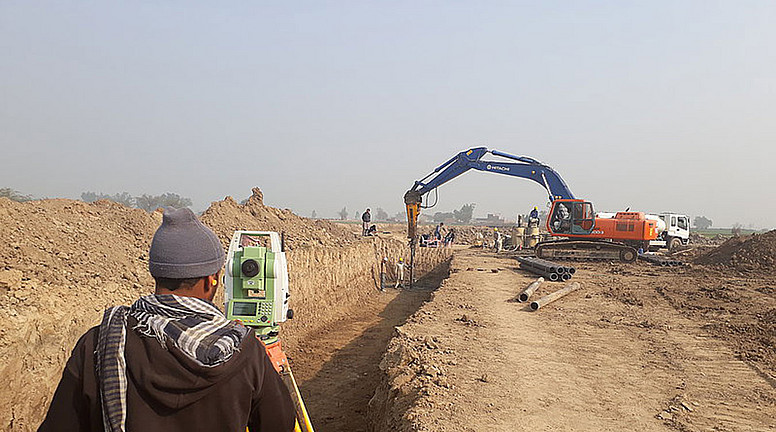Ductile iron piles have been used in Austria and increasingly in many countries since the 1980s as an economic, yet technically very high-quality deep foundation method. They are used as foundation elements in building construction, civil engineering, industrial construction, pipeline construction, bridge construction and for special applications. The ductile iron full displacement pole, which is inserted into the ground by ramming, effectively directs the forces from the structure into the ground.
Regulations on design, quality assurance, statics and installation are currently specified in Austria in ÖNORM B 2567. For the first time they were regulated in the ONR 22567 from 1999, which was then completely revised in 2012 on the basis of the Eurocode and published as ÖNORM B 2567. This Austrian standard has aroused great international interest, which is why it is also available in an English-language version.
In international use in Pakistan
Tiroler Rohre GmbH has been producing and supplying ductile cast iron pile systems all over the world for more than 30 years. Based on his experience, the company from Hall in Tirol was able to land a major deep start-up project in Pakistan. The client was the "Frontier Works Organization", the technology and science division of the Pakistani army.
It was about the deep foundations of two bridges of the six-lane highway between Lahore, the second largest city in the country, and Sialkot in northwestern Pakistan. Originally, four large bored piles were to be used per bridge abutment, a total of 16 pieces. Due to the high cost of conventional deep foundations, a ductile cast iron pole system was used as the more economical alternative, which in addition to the technical advantages, also resulted in significant savings in terms of concrete and energy and thus in terms of costs.
Piles of type 118 with a wall thickness of 7.5 mm and a conical pile shoe were used. In order to get to this project at all and at the same time to optimize the design of the deep foundations, calculations had to be carried out and proof had to be provided. The basis for this was the English version of ÖNORM B 2567, which is also regarded by the client as a recognized and technically high-quality set of rules.
Tiroler Rohre GmbH has been actively involved in the development of standards for almost half a century, reports Ing. Christian Auer, Head of Quality Management. Auer: "In compiling the standard, we were able to bring in both our many years of expertise and the experience of our users, and the international interest is a nice recognition of the quality of these standards as well as Austrian products."
Source: www.austrian-standards.at
Fast. Simple. Safe.
www.trm.at

